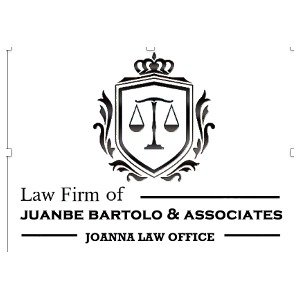Best Foreclosure Lawyers in Baguio City
Share your needs with us, get contacted by law firms.
Free. Takes 2 min.
Free Guide to Hiring a Real Estate Lawyer
List of the best lawyers in Baguio City, Philippines
About Foreclosure Law in Baguio City, Philippines:
Foreclosure refers to the legal process by which a lender, usually a bank or financial institution, takes ownership of a property when the borrower fails to make mortgage payments. In Baguio City, Philippines, foreclosure proceedings are guided by various laws and regulations, including the Civil Code of the Philippines, the Real Estate Mortgage Law (Act No. 3135), and the Rules of Court.
Why You May Need a Lawyer:
There are several situations where seeking legal help in foreclosure matters in Baguio City is advisable:
- If you are facing foreclosure and want to explore legal avenues to protect your rights and interests
- If you believe that your lender has engaged in predatory lending practices
- If you need assistance in understanding your mortgage contract and obligations
- If you wish to negotiate with your lender for a loan modification or alternative resolution
- If you want to contest the foreclosure in court or require representation during legal proceedings
Local Laws Overview:
Key aspects of local laws relevant to foreclosure in Baguio City, Philippines, include:
- Real Estate Mortgage Law (Act No. 3135) governs the extrajudicial foreclosure of mortgages in the Philippines.
- The Civil Code of the Philippines provides provisions on the rights and obligations of borrowers and lenders in mortgage transactions.
- The Rules of Court outline the procedures and requirements for judicial foreclosure cases that are brought to court.
Frequently Asked Questions:
1. Can the lender foreclose on my property without notice?
No, the lender must provide notice of foreclosure proceedings to the borrower through registered mail or personal delivery before initiating any foreclosure action.
2. Is it possible to stop a foreclosure once it has started?
Yes, there are various options to potentially halt or delay a foreclosure, such as loan modification, repayment plans, or filing for bankruptcy. Seeking legal advice promptly is crucial to explore potential solutions.
3. What is the difference between judicial and extrajudicial foreclosure?
Judicial foreclosure involves filing a lawsuit in court to obtain a foreclosure order, while extrajudicial foreclosure follows a non-judicial process outlined in Act No. 3135, where the property is sold through a public auction.
4. Can I negotiate with the lender to avoid foreclosure?
Yes, it is possible to negotiate with the lender to explore alternatives to foreclosure, such as loan modification or a repayment plan. Consulting with a lawyer can be helpful to negotiate suitable terms.
5. What happens to the proceeds from the foreclosure sale?
After deducting outstanding debts, the proceeds from the foreclosure sale are used to pay off the mortgage loan, with any surplus returned to the borrower. If the sale does not cover the full debt, the lender may seek further collection.
Additional Resources:
- Baguio City Register of Deeds - Provides information on property ownership and relevant documents.
- Integrated Bar of the Philippines (IBP) - Local branch can provide referrals to qualified foreclosure lawyers.
- Home Development Mutual Fund (Pag-IBIG Fund) - Offers assistance and resources for homeowners facing foreclosure.
Next Steps:
If you require legal assistance or have concerns about foreclosure in Baguio City, it is recommended to:
- Gather all relevant documents, including mortgage contracts, payment records, and foreclosure notices.
- Research and shortlist reputable foreclosure lawyers in Baguio City.
- Schedule consultations with potential lawyers to discuss your situation and evaluate their expertise and fees.
- Engage a lawyer who specializes in foreclosure law and has proven experience in handling similar cases.
- Work closely with your chosen lawyer to determine the best course of action and safeguard your rights throughout the foreclosure process.
Lawzana helps you find the best lawyers and law firms in Baguio City through a curated and pre-screened list of qualified legal professionals. Our platform offers rankings and detailed profiles of attorneys and law firms, allowing you to compare based on practice areas, including Foreclosure, experience, and client feedback.
Each profile includes a description of the firm's areas of practice, client reviews, team members and partners, year of establishment, spoken languages, office locations, contact information, social media presence, and any published articles or resources. Most firms on our platform speak English and are experienced in both local and international legal matters.
Get a quote from top-rated law firms in Baguio City, Philippines — quickly, securely, and without unnecessary hassle.
Disclaimer:
The information provided on this page is for general informational purposes only and does not constitute legal advice. While we strive to ensure the accuracy and relevance of the content, legal information may change over time, and interpretations of the law can vary. You should always consult with a qualified legal professional for advice specific to your situation.
We disclaim all liability for actions taken or not taken based on the content of this page. If you believe any information is incorrect or outdated, please contact us, and we will review and update it where appropriate.








